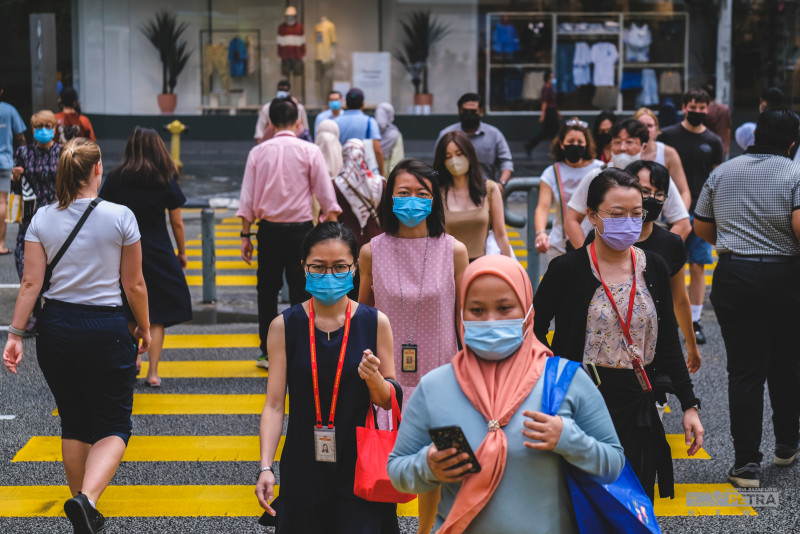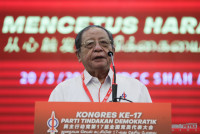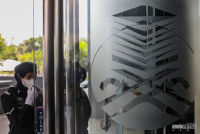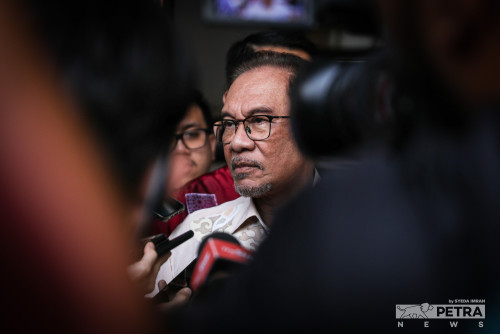EDUCATION, religion, and race are the most popular cards used by politicians and even certain NGOs to either gain attention or support from the masses, though it is a taboo.
The recent case where the court dismissed the appeal by NGOs to declare vernacular schools unconstitutional, is a case that I feel is uncalled for; sadly, our political system and the NGOs have taken so much time, effort and money to pick on the vernacular schools in the country – this is not only a waste of taxpayers’ money and resources, but also a waste of time when there are many other more urgent matters in need of our immediate attention.
As Malaysians, we are faced with various issues that include corruption, crime and justice, electoral process and political reform; finance and taxation, jobs and wages, the rising cost of living; healthcare, Covid-19, and food security; public infrastructure and public institutions; development, economy, environment and sustainability; gender and sexual equality, race relations, welfare and social security, culture and identity and migrant and refugees.
The recent survey by Citizen’s Agenda states that government corruption and bribery are major issues identified by Malaysians across the board.
There was and still is a great sense of frustration and anger with the government, both in terms of lack of competence and lack of integrity.
The high amount of frustration with the government’s inability to solve the problems makes the matter even more serious.
The announcement by the incoming Yang diPertuan Agong, the Sultan of Johor, stating that he wants to “hunt down the corrupt in the country” speaks volumes of our situation.
The economy, inflation, the rising costs of living and the failing Ringgit are other key concerns. This situation is across the board, regardless of age, race, or language.
The climate crisis is often raised in connection with food security or transport and frequent flooding.
For instance, the sudden increase in the price of rice from RM26 to RM42 per 10kg packets is unbelievable and beyond any Malaysian’s imagination.
How is an average family of five with an income of less than RM 1500 supposed to survive? What are the contingency preparations for rice production? What are we doing to ensure there is enough rice on every citizen’s table?
Nation was doing well before
I am dumbfounded that despite all the above problems, the politicians and NGOs are barking at the wrong tree in wanting to remove the vernacular schools.
These schools have been accused of causing the lack of national unity in Malaysia whereby the system segregates education by race.
I beg to differ – vernacular schools were here in Malaya long before the national type schools.
There is also a lack of data, statistics, or evidence to support the argument that our national unity or racial integration is deteriorating due to these schools.
We were doing well very well until Tun Hussein Onn became our prime minister, continued with the slow emergence of several grave issues during the era of Tun Dr Mahathir Mohamad, and this continued for 22 years when race relations and national unity were seen from the lenses of politicians rather than the ordinary rakyat.
Almost every Malaysian that I have met and dealt with is a sober and rational-minded citizen. Who is the issue now?
During the 1980s and early 1990s, we were one of the fast-growing and leading nations of Asia, until the Asian financial crisis.
The rakyat were happy because everyone enjoyed the harvest of industrialization.
From an agrarian era, we went on to become an industrialized nation, where most Malaysians were employed with lots of job opportunities available in almost every state except for Kelantan.
People were busy and had no time to focus on anything other than moving to towns from estates, and rural areas into new industrial estates such as Shah Alam, Petaling Jaya, Senawang, Pasir Gudang, Mak Mandin, Prai, Kulim, Ayer Keroh, all of which are now standing at many 2275 industrial areas in Malaysia, according to Mida.
Bring improvements, not cause turmoil
However, today the political dynamics have changed. Economic vulnerability has increased. Social equity and race relations issues have popped up, as politicians are running out of ideas.
They are still using education, race, and religious sentiments to win the hearts and minds of Malaysians.
We must stand together as fair, reasonable, and mature Malaysians to oppose this kind of despicable action and legal suits that divide our people and our nation.
We need Malaysians to not only practice tolerance among one another but to understand each other and further reaffirm the strong unity that we once had.
Cases like these should never be allowed to be argued or presented in the courts as we have enough laws and a very fair and dynamic constitution that clearly states the position of the vernacular schools.
We must focus on ways and means to reduce corruption. Every civilian or company that faces corruption issues must report and bring the culprits to the pulpit of law.
Every Malaysian should focus on new technologies that will bring greater good to the people.
We are onto the gig economy but serving only at the lowest ebb of becoming Grab drivers or delivery persons. We should develop more apps for our small and medium-scale industries (SMIs) and entrepreneurs to bring their services and products to the world.
We should develop SMI entrepreneurs to the next level and ensure that we bring better harvests for our fishermen, better yields for our farmers, and AI-driven tools for our palm oil sector, which is dependent on foreign workers.
We should seek means and measures to change the education system in our country.
Imagine if the parent-teacher associations take a legal suit to seek better quality education, to match the job market, just like how the three students at a school sued the English teacher who has a chronic absenteeism issue and won the case in 2019.
These kinds of serious and pungent moves will bring about positive changes to the education system.
Malaysia is a young nation. We need more positive impacts on the economy, education, race relations, employment and all the identified issues. Instead of wasting precious time on taking legal action against the vernacular education system, we should be looking into ways and means to increase the number of non-Malay students in the national type schools. We should also sue politicians who raise or condemn the religious harmony of our nation.
We must promote Malaysia as a nation of yesterday, today, and tomorrow; respect our history, conduct ourselves well today and nurture our children for tomorrow, bringing a seamless nation geared towards greater harmony, integration, and peace.
Our multicultural, multi-religious, multi-ethnic diversity cannot be erased or ignored.
We have to accept and move forward, not resist, and cause turmoil, or even allow politicians to divide us any further. – The Vibes, December 29, 2023
Ravindran Raman Kutty is a public relations practitioner and a reader of The Vibes













